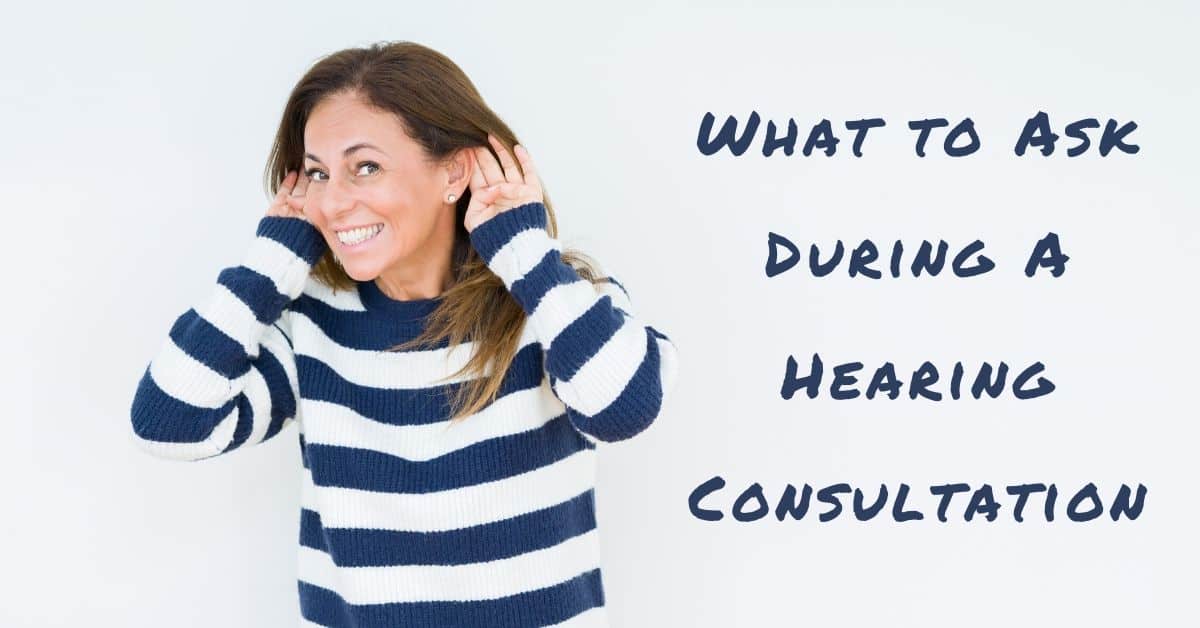
If you’ve scheduled a hearing consultation and screening, good for you! Whether you’re going in for a regular checkup on your hearing or you’ve noticed a definite hearing loss, you’re taking the best step toward ensuring your best long-term hearing health.
Steps of the Hearing Consultation
When you enter the audiologist’s clinic, you’ll first have a conversation with the doctor about your health history, hearing and otherwise. The doctor will ask you questions about not only your medical past but also your lifestyle and the kinds of things that you might wish to achieve through better hearing.
Next, you’ll have a physical examination of your ears, and then the actual hearing test. You’ll wear a set of headphones in a sound-proof booth and the audiologist will ask you to respond to a series of tones and spoken words.
Your results will be immediately printed out on an audiogram – a graph that represents your hearing ability plotted along with what is considered normal. This will indicate which frequencies your ears are representing faithfully and which could use some help. At this phase, you will probably want to ask the doctor some questions about what’s going on with your hearing health.
Here are a few example questions for you to consider that might help you get the most out of your visit:
What kind of hearing loss do I have? Will it change?
This is a good question as the answer will play a big part in what treatment options are available to you, and what you can do to try to prevent further hearing loss.
There are two main types of hearing loss: conductive and sensorineural. Conductive hearing loss results from a blockage somewhere in the mechanical chain between your outer ear and the cochlea. It could be as simple as an impacted earwax blockage or as complicated as abnormal bone growth in the middle ear. Ear infections, while most common in children, are frequent causes of conductive hearing loss. Many types of conductive hearing loss can be treated with surgery and hearing can be restored, though unfortunately it is also the rarer type of hearing loss.
Sensorineural hearing loss encompasses most types of noise-induced hearing loss, as well as age-related hearing loss (or presbycusis). This type involves the breakage of the tiny, hair-like cells in the inner ear, called cilia, which convert the mechanical energy of sound into the electrical energy that the brain experiences. Unfortunately, the cilia, once damaged or broken, do not grow back.
There is, however, increasing evidence that anti-inflammatory diets such as the Alternate Mediterranean Diet (AMED) or Dietary Approaches to Stopping Hypertension (DASH) help boost antioxidant behavior and tame free radicals in the blood which constrict blood flow to these tiny cilia. It may be that adopting and adhering to an anti-inflammatory diet can prevent the onset or slow the progress of age-related hearing loss.
Do I Need Two Hearing Aids?
Hearing aids are a considerable investment, and while 90% of people are properly prescribed two hearing aids, that leaves 10% of people who only require one. It’s likely that your two ears have two different hearing loss profiles, so your audiologist will be able to answer this question by the end of your hearing test.
What Kind of Warranty Can I Expect?
Hearing aids lead a hard life in the moist environments of our ear canals, and the lifespan of a hearing aid doesn’t usually exceed about 5 years. It’s not uncommon that repairs need to be made, and these can be pretty expensive unless your hearing aids are covered under a warranty. Most reputable hearing aid manufacturers offer a warranty, so make sure your repairs will be covered if they are to occur at a reasonable point in the device’s lifespan.
If you are ready to schedule a hearing consultation, contact us today!
